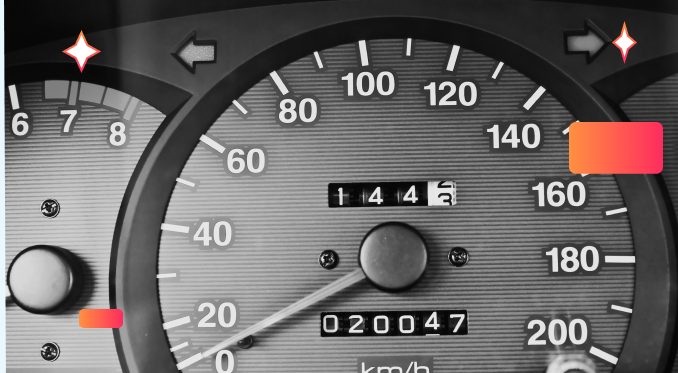Notarizing Your Odometer Disclosure Statement

By NotaryLive Staff
Published on 11/22/2024
Transferring a vehicle’s legal ownership is a key life milestone for many, and in most states, submitting accurate odometer readings is an essential part of that process.
Let’s explore important details on odometer disclosure statements and how you can securely and efficiently notarize critical information.
1. What is an Odometer Disclosure Statement?
An odometer disclosure statement formally records a vehicle’s mileage (total distance) on the odometer at the time of sale. This document is typically required by federal law and state when transferring the ownership of a vehicle.
This crucial record also aids in the transparency and protection of a buyer from odometer fraud.
2. When is an Odometer Statement Necessary?
In most states, an odometer disclosure statement must legally accompany vehicle sales and title transfers to record mileage at the time of ownership change.
Exceptions for the odometer disclosure statement are often for vehicles that:
- Are being sold or transferred ownership and are less than 10 years old
- The GVWR (Gross Vehicle Weight Rating) is less than 16,000 pounds (heavy vehicles like large trucks are exempt from the odometer disclosure statement).
Federal and state laws require these statements during ownership transfers to promote transparency around vehicle histories and deter odometer tampering.
Disclosure statements protect buyers from mileage fraud when purchasing used cars.
3. Can Odometer Statements Require Notarization?
While specific regulations vary among states, some necessitate submitting notarized odometer disclosure statements and sale/title paperwork.
For example:
In Arizona, you must complete the odometer reading disclosure found in the Transfer of Ownership section on the back of the vehicle’s Certificate of Title. The seller should not sign on the title without a Notary Public or MVD Agent.
In Iowa: a signed by both the seller and buyer is required. If there’s an odometer error, a Notarized Statement of Fact completed by both the seller and buyer for each title reassignment is needed
We recommend checking with your local Department of Motor Vehicles (DMV) for the specific notarization requirements in other states.
4. How Should Sellers/Buyers Approach Statements?
Both vehicle sellers and buyers should understand their state’s odometer statement procedures when transferring ownership.
Carefully follow each step to avoid issues:
For Sellers:
- Review disclosure form requirements
- Record accurate odometer reading
- Notarize if mandatory in your state
- Provide a completed statement to the buyer
For Buyers:
- Review the statement and confirm reasonable mileage
- Note any issues for further verification
- Retain your copy of the signed statement
5. Get Your Mileage Meter Disclosure Statement Notarized Online
If your state requires you to notarize a mileage meter disclosure statement, NotaryLive provides an online notarization process where you can remotely sign and notarize a document from the comfort of your home. If you’re interested in getting a document notarized remotely, Notarize Now!
How NotaryLive Works
Notarize Your Medical Consent Forms Now!
Frequently Asked Questions
- What are the requirements for the federal odometer disclosure?
- Sellers must provide the odometer reading at the time of the vehicle transfer.
- Does the IRS require odometer readings for mileage?
- No, the IRS requires total annual mileage records for deductions.
- How can I get a free odometer check?
- Use online services like EpicVIN or CARFAX with the vehicle's VIN.
Interested in Learning More About Notarizing Documents Online? Here are Some Other Helpful Articles:
- What is Online Notarization?
- What is NotaryLive?
- What are The Benefits of Notarizing Online?
- What Businesses Could Benefit the Most from Online Notary Services?
- My Car Has Been Towed! Do I Need A Vehicle Release Form?
Updated Date: 03/05/2026
